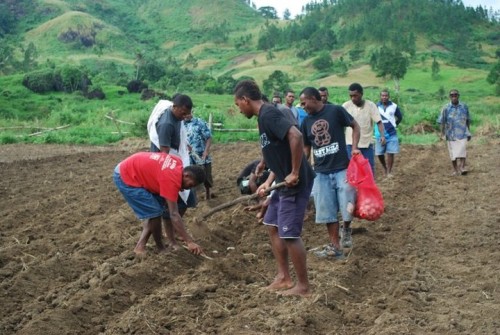The National President, Soil Science Society of Nigeria, Prof. Victor Chude, has said that any country that failed to adequately care for its soil, risks hunger and diseases.

Chude said in an interview in Abuja that the quality of soils plays critical roles in food production and security.
“Any nation that ignores its soil is bound to fail. That means that if the soil is not taken good care of, it will not support food production and ultimately there will be hunger and diseases. In fact, there will be disaster,” he said.
On level of attention given to soil quality in Nigeria, Chude commended the National Assembly and the Executive for making efforts to ensure rich, healthy soils that would boost food production for the teeming populace.
He commended the national assembly for passing the Nigeria Institute of Soil Science Bill and President Muhammadu Buhari for singing it into law.
“It is not true that Nigeria is not showing concern for soils, otherwise the National Assembly would not have passed the Nigeria Institute of Soil Science Bill and the government would not have signed it into law.
“You are aware that in 2017, precisely 3rd of February, the President signed the Bill into law.
“That institute is charged with the responsibility of professionalising soil science as well as advising government and users of soil on the sustainable management of soil to support efficient crop production.
“So, soil is gaining attention. That institute has taken off. Presently it is conducting training of farmers while starting with extension workers, on understanding soil resources of this country and how best to manage them in collaboration with the National Assembly.
“The institute has a lot of programmes that we expect in the next two, three years, to ensure soil is properly placed on the policy agenda of this government, to make sure our soils are properly protected and properly maintained,” he said.
Chude was one of those who canvassed for the establishment of an institute of soil science in the country.
Following the advocacy, the National Assembly passed a bill establishing the institute, while President Muhammadu Buhari signed it into law on Feb. 3, 2017.
The institute among other things is meant to regulate the standard of academic qualifications and practical skills by persons seeking to become registered members, associates or fellows of the institute.
By Cecilia Ijuo
